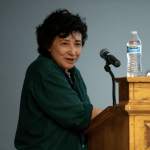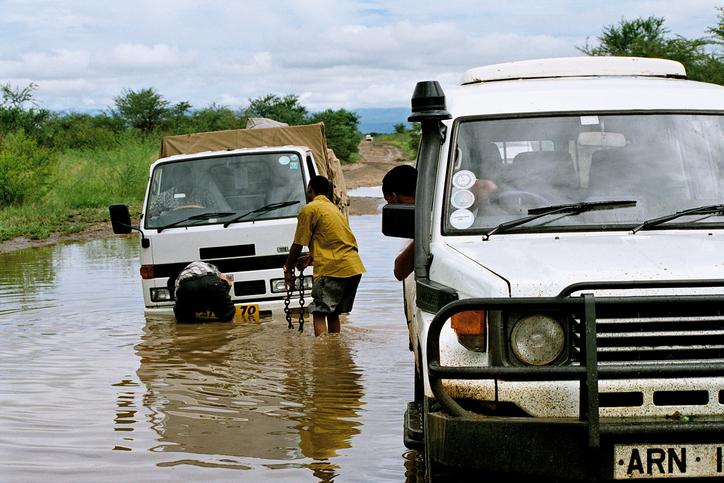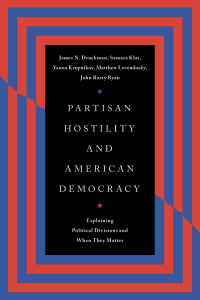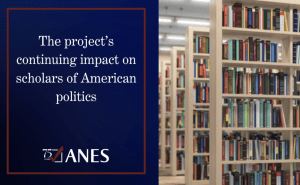INDEPENDENT, SCIENTIFIC RESEARCH
ON POLITICS AND SOCIETY
Get to know CPS
From the CPS Blog
The ANES’s continuing impact on scholars of American politics.
The ANES has profoundly impacted generations of scholars studying American political attitudes and behavior. Read more from ANES scholars on the CPS blog.
And find more on what we’ve learned from the project in CPS’s Q&A with ANES PI Nicholas Valentino.
Events
This year’s CPS Wednesday seminar series has an exciting lineup of speakers.
Miller-Converse Lecture 2025
The 2025 Miller-Converse Lecture will be held on March 20, 2025 at 4 p.m. The speaker will be Tali Mendelberg.
ISR Thompson 1430
The Miller-Converse Lecture
CPS News
SUNGEO launches to integrate data at a variety of geographic scales
 Posted April 17, 2024.
Posted April 17, 2024.
Today marks the launch of the Subnational Geospatial Data Archive (SUNGEO) project, a set of tools that will improve research involving sub-national data in order to bolster knowledge of how societies develop, prosper, and change. Funded by a grant from the National Science Foundation, SUNGEO offers data on demography, politics, climate, violence, public health, weather, and terrain at a variety of geographic scales. It offers innovative tools to integrate spatially-misaligned data. The tools have been designed for researchers and analysts wishing to assess values of and relationships among variables across data sources, scales, integration methods, and geographic/historical contexts. More from CPS.
ANES wins AAPOR's Policy Impact Award
 Posted April 12, 2024.
Posted April 12, 2024.
The American National Election Studies (ANES) was recognized today by the American Association for Public Opinion Research (AAPOR) with its Policy Impact Award– given annually to outstanding projects making a clear impact, improving policy decisions, practice and discourse. More from CPS.
CPS hosts ‘The 2024 Mexican Elections in Context’
 Posted April 12, 2024.
Posted April 12, 2024.
On June 2, 2024, Mexican citizens will vote in the largest election in the country’s history? What is at stake? More from the Michigan Daily.
Jon Miller: Gen X Attitudes on Evolution Shift with Age
 Posted April 10, 2024.
Posted April 10, 2024.
A new study illustrates that the attitudes of Americans in Generation X toward evolution shifted as they aged. More from Michigan News and Phys.org.
Sandvig receives U-M presidential award for public engagement
 Posted April 11, 2024.
Posted April 11, 2024.
Christian Sandvig was awarded the University of Michigan’s 2023 presidential award for public engagement for his far-reaching impacts on computer algorithm auditing. More from Michigan News.
James Gibson Presents MIller-Converse Lecture
 Posted April 11, 2024.
Posted April 11, 2024.
James L. Gibson of Washington University in St. Louis presented the 2024 Miller-Converse Lecture. More from the Michigan Daily.
Lupia appointed Interim VP for Research and Innovation
 Posted April 1, 2024. CPS faculty member Arthur Lupia, a longtime leader of social science research institutions and one-time PI of the American National Election Studies, has been appointed the as the University of Michigan’s interim vice president for research and innovation. More from The Record.
Posted April 1, 2024. CPS faculty member Arthur Lupia, a longtime leader of social science research institutions and one-time PI of the American National Election Studies, has been appointed the as the University of Michigan’s interim vice president for research and innovation. More from The Record.
Political Rage on Social Media Is Making Us Cynical
 Posted March 11, 2024. Political anger and cynicism are rising in the U.S. and in many democracies worldwide, and both are associated with exposure to political attacks on social media, a new study by CPS’s Ariel Hasell, Brian Weeks, and Audrey Halversen shows. More from CPS.
Posted March 11, 2024. Political anger and cynicism are rising in the U.S. and in many democracies worldwide, and both are associated with exposure to political attacks on social media, a new study by CPS’s Ariel Hasell, Brian Weeks, and Audrey Halversen shows. More from CPS.
Celebrating 75 years of the American National Election Studies
The American National Election Studies celebrates its 75th anniversary in 2024 with events at MPSA, APSA, and more. The Center for Political Studies blog offers chronicles, comments, and reflections on the project. More from CPS.

Featured Project
Climate Change, Demographic Shifts, and Socio-Political Stability in Sub-Saharan Africa
Leveraging the skills of an exceptional interdisciplinary team of University of Michigan’s social, data, and climate scientists, this project will advance the frontiers of usable social-scientific knowledge at the intersection of climate, demography, and socio-political stability as it affects U.S. national security interests. The project will analyze how complex interactions of climate and demographic change affect sociopolitical stability in Africa, assess where and when risks are greatest, and thus respond to two central concerns of the 2022 U.S. National Defense Strategy: climate change and China (PRC). The project will generate actionable research findings on factors that prompt and locations that harbor great risks of political instability and conflict in Africa.
Learn more about the project, funded by the Minerva Research Initiative.
The PIs are Arun Agrawal and Yuri Zhukov.

Featured Publication
Partisan Hostility and American Democracy
For generations, experts argued that American politics needed cohesive parties to function effectively. Now many fear that strong partisan views, particularly hostility to the opposing party, are damaging democracy. Is partisanship as dangerous as we fear it is? To provide an answer, this book offers a nuanced evaluation of when and how partisan animosity matters in today’s highly charged, dynamic political environment, drawing on panel data from some of the most tumultuous years in recent American history, 2019 through 2021. The authors– James N. Druckman, Samara Klar, Yanna Krupnikov, Matthew Levendusky, and John Barry Ryan– show that partisanship powerfully shapes political behaviors, but its effects are conditional, not constant. Instead, it is most powerful when politicians send clear signals and when an issue is unlikely to bring direct personal consequences. In the absence of these conditions, other factors often dominate decision-making. They argue that while partisan hostility has degraded US politics—for example, politicizing previously non-political issues and undermining compromise—it is not in itself an existential threat. As their research shows, the future of American democracy depends on how politicians, more than ordinary voters, behave.
Read more about the book. (University of Chicago Press: June 2024)


